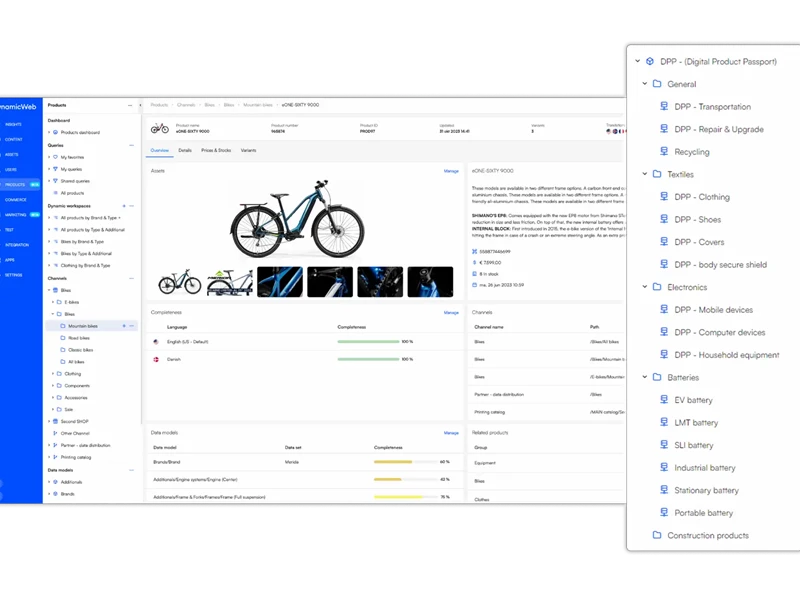
The Digital Product Passport
Get ready for the new EU sustainability regulation
What is the Digital Product Passport?
In short, the Digital Product Passport is a tool that provides detailed information about a product throughout its entire lifecycle.
This information will include data about the product's composition, origin, environmental impact, and other relevant details. All of this information will be available to anyone interacting with the product through a scannable tag (e.g., QR code or similar).
The Digital Product Passport (DPP) has been introduced by the European Union (EU) as part of a new sustainability regulation aimed at accelerating the transition to a circular economy and increasing material and energy efficiency.

What does it mean for your business?
The DPP will make it easier to publish important product information, provide more transparency and traceability in the supply chain, and allow consumers to easily compare products and make more informed decisions about purchasing, repairing, and recycling products. It will also make it easier for authorities to monitor compliance with legal obligations.
This new level of transparency will motivate brands and manufacturers doing business within the EU to source, produce, and distribute more sustainable products in order to remain competitive.
It’s All About Data!
The Digital Product Passport (DPP) will set new standards for how brands and manufacturers maintain the quality and consistency of their product data. DPP data will most likely include:
- Product Data
Information such as name, brand, model, batch number, production date, and warranty details. - Material Data
Details about the origin of raw materials and components. - Supplier Data
Information about the suppliers involved in the delivery process. - Repair
Details on the product’s overall repairability, as well as specific repair incidents and causes. - Ownership Data
Information about current and previous owners. - Environmental Impact Data
Details about the carbon footprint from production and distribution processes, as well as the environmental impact throughout the product’s entire lifecycle.
Potential Challenges and Opportunities
It will be up to individual brands and manufacturers to collect, provide, and share the necessary data, and there is no doubt that the extensive data requirements in the DPP will pose a challenge for many players in the supply chain.
Firstly, it will require you to gain a much deeper understanding of your products' overall impact. Secondly, it will require you to implement new strategies, processes, and systems to manage the data requirements, which may involve significant investments.
However, the Digital Product Passport will also provide a completely new platform with new opportunities for you to position your brand as a serious and responsible partner with a sustainable business model – boosting consumer trust, brand image, and competitiveness.

PIM and the Digital Product Passport
A PIM system can play a crucial role in helping you comply with the new DPP requirements and ensure that the correct data is always available, up-to-date, securely stored, and efficiently distributed.
We offer a flexible and scalable PIM system that makes it easy for you and your business to collect data from various sources, including ERP systems, third-party data pools, partner feeds, and more.

Get more information about the Digital Product Passport.
Fill out the form to download a whitepaper.
Want to know more?
Kåre Gade Petersen
Senior Business Consultant
+45 26 37 79 14
kgp@consit.dk
